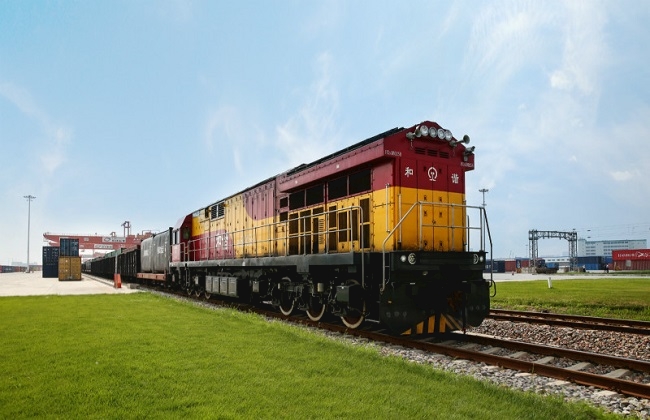
The “Chang'an” China-Europe freight trains, has 15 routes linking Kazakhstan, Russia, Belgium, Germany, Poland and other countries. (Photo: Liang Xiao)
Considered an important part of the Belt and Road Initiative, the China-Europe freight train service has injected new vitality into Xi'an.
Xi'an, capital of northwest China's Shaanxi Province, has been an important gateway to China's opening-up since ancient times. It was the capital of the Tang Dynasty (618-907) and the starting point of the ancient Silk Road. Its political and economic ties with foreign countries dates back over 3,000 years.
Xi'an launched its first China-Europe freight train in 2013. Currently, the train service, known as the “Chang'an” China-Europe freight trains, has 15 routes linking Kazakhstan, Russia, Belgium, Germany, Poland and other countries.
More than 5,000 types of goods, including automobiles, textile raw materials, household cleaners and personal care products, are transported by the freight trains.
"Despite the COVID-19 epidemic this year, the ‘Chang'an’ China-Europe freight trains have guaranteed smooth traffic through international trade routes and services of global supply chains for corporations,” said Liu Wei, Assistant Director of the Port Operation Promotion Bureau of the Administrative Committee of Xi’an International Trade & Logistics Park.
The freight train service adopts a segmented transport system, which does not require the personnel involved to be quarantined. The "non-contact" feature is especially significant, especially during a pandemic.
From January to June this year, China-Europe freight trains to and from Xi'an made more than 1,600 trips, twice the number of the same period of last year. The total weight of the cargo was 1.301 million tons, 1.9 times the same period of last year, according to the Xi'an International Trade & Logistics Park.
"The freight trains have become ‘locomotive envoys of the ancient Silk Road’, exporting products that are made in China and importing specialty products of countries involved in the Belt and Road Initiative into the Chinese market,” Liu said.
Source: People's Daily Online







